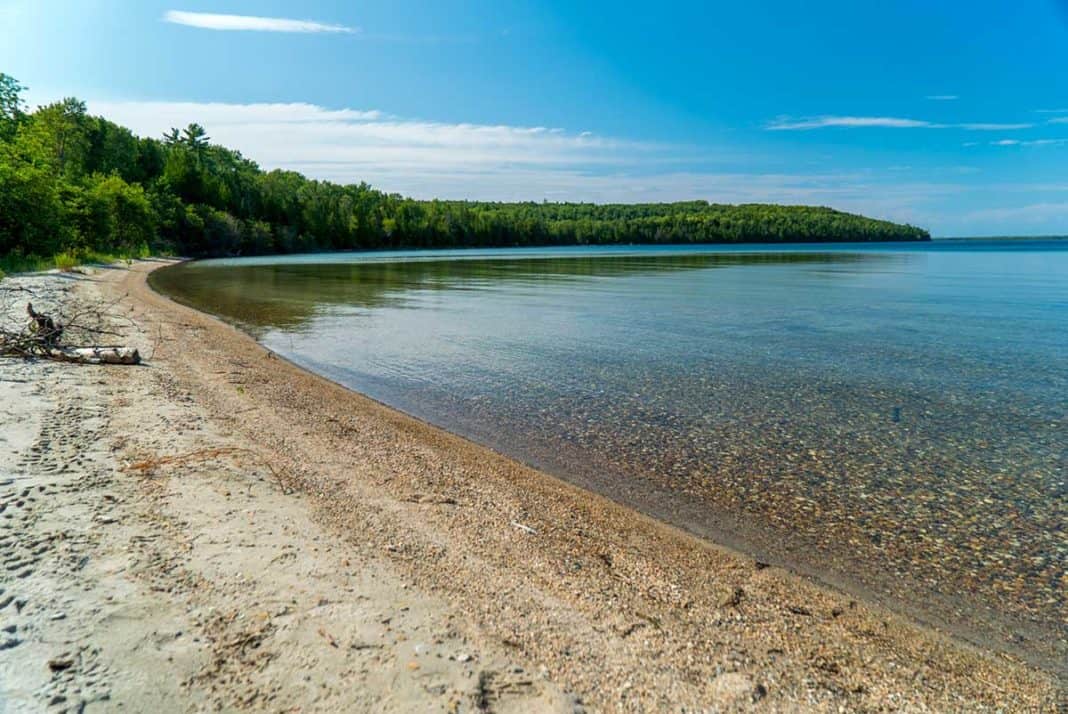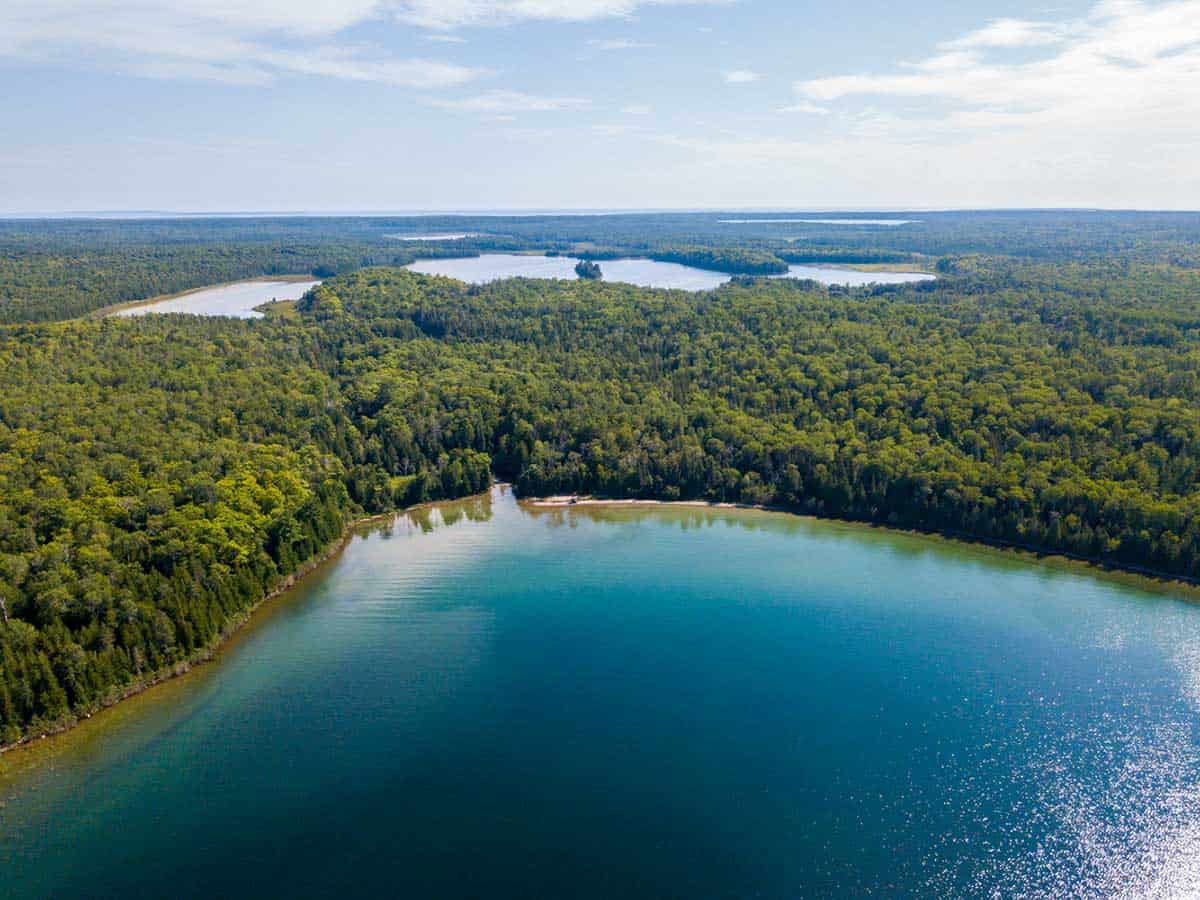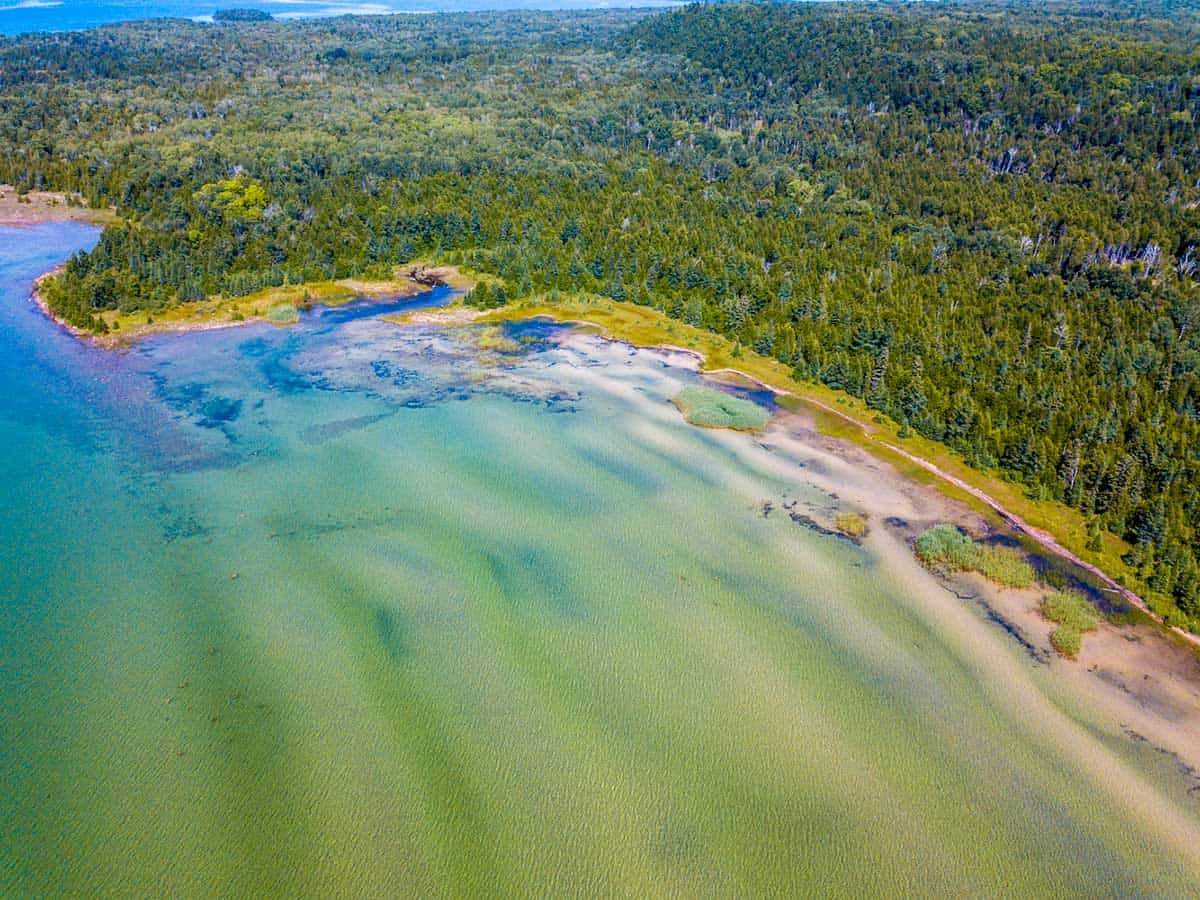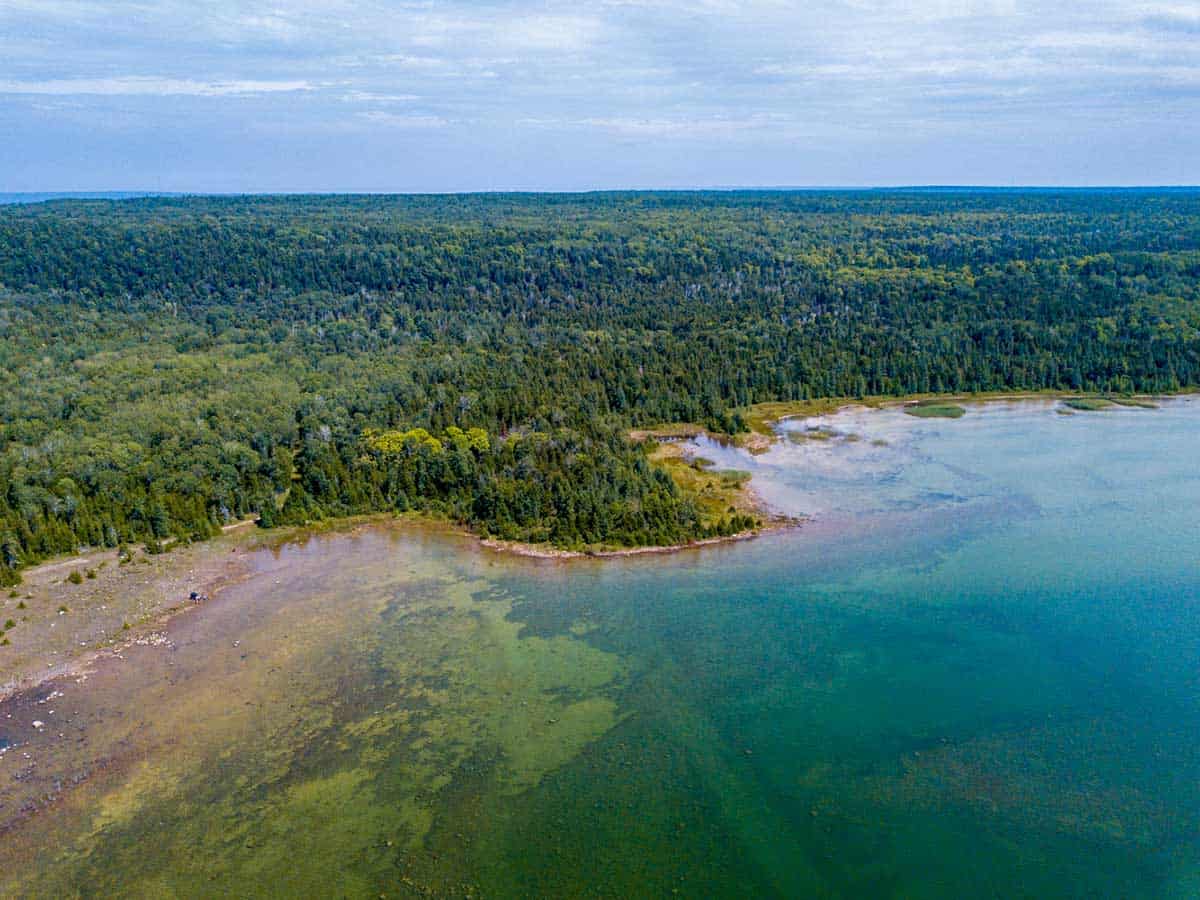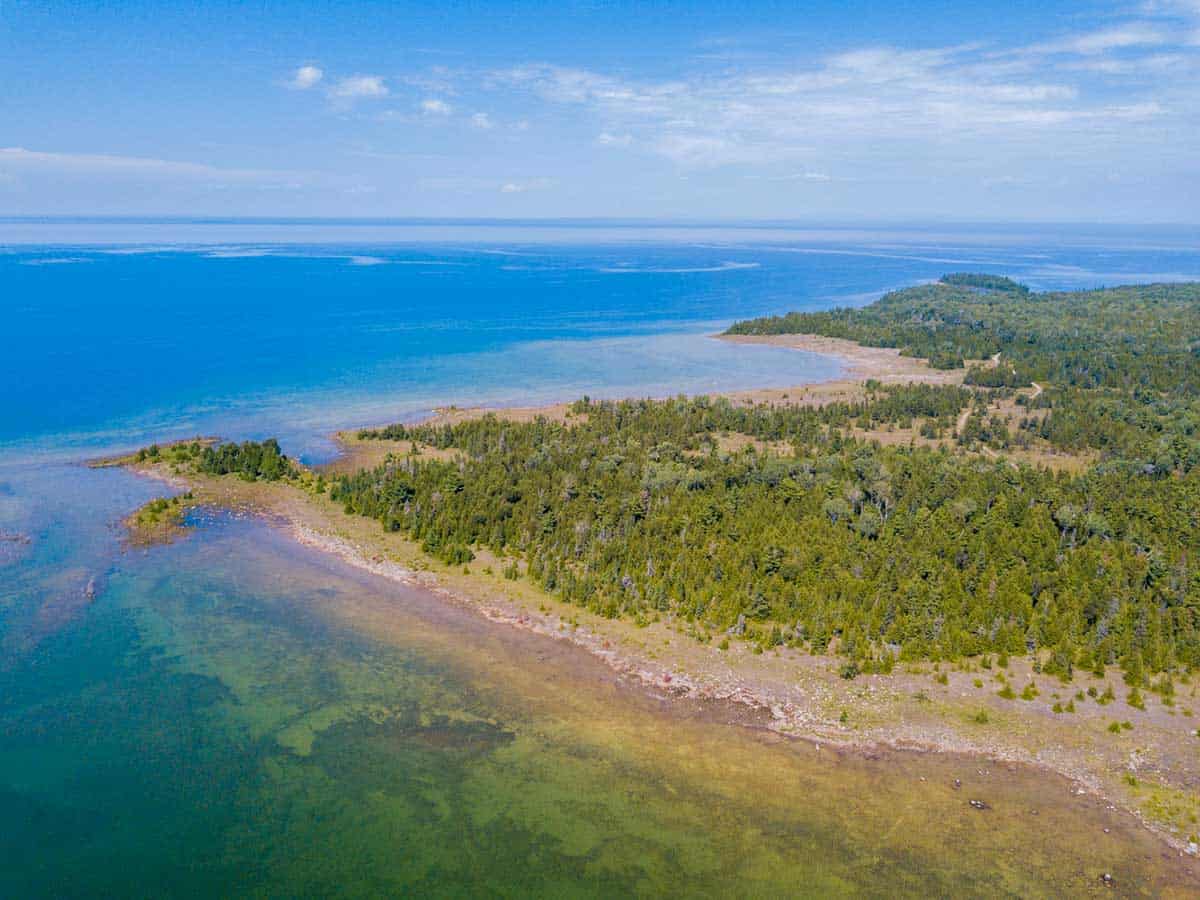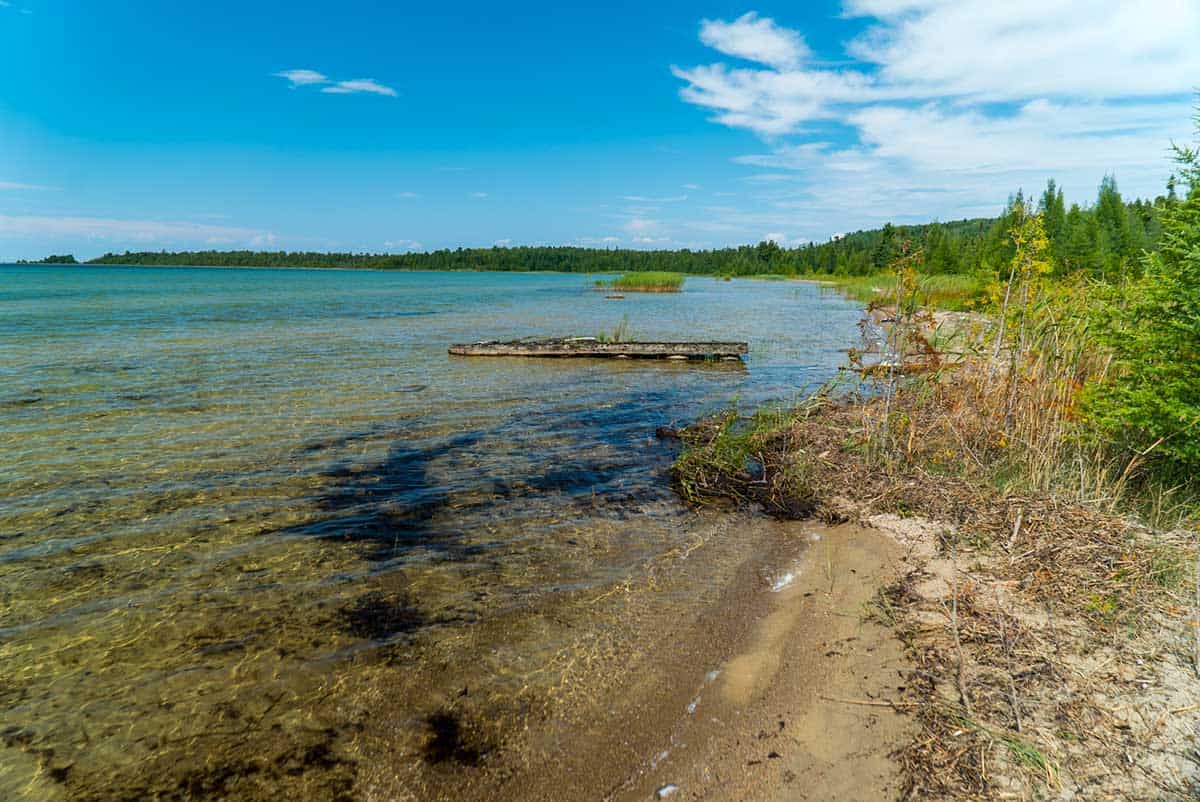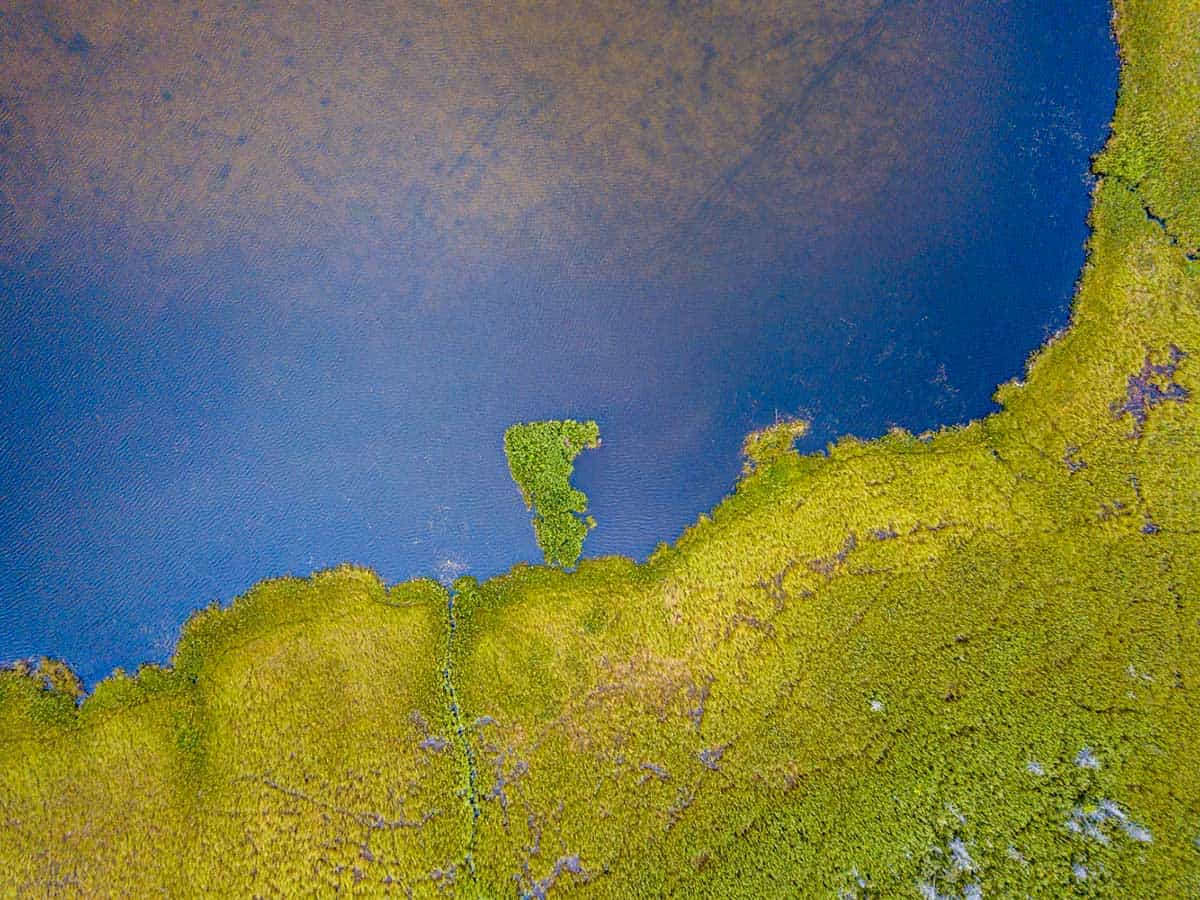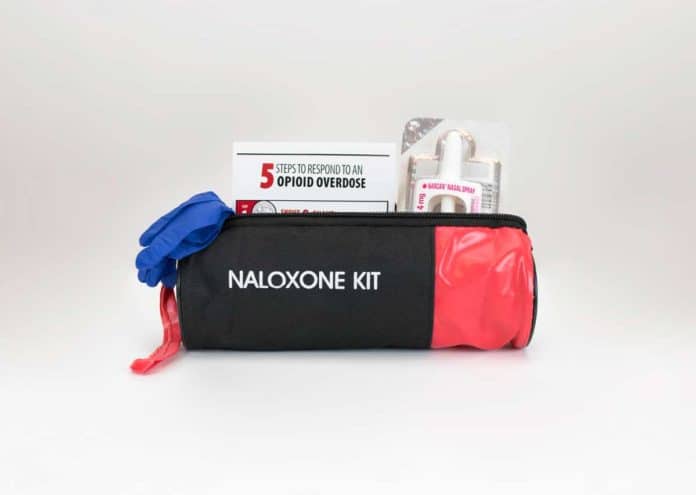VIDAL BAY – Nature Conservancy of Canada (NCC) has expressed an interest in purchasing the high-profile Vidal Bay Forest property in Western Manitoulin, contingent upon its ability to successfully fundraise toward the purchase price, which would see the massive property protected by the Canadian public entity.
“It’s hard to put into words how unique this opportunity is, especially with the significant wildlife species there and globally rare habitat. It’s an opportunity we didn’t think we’d ever have and we’re certainly excited,” said Esme Batten, program director of midwestern Ontario for NCC, who made a trip up to tour the property in recent weeks.
Vidal Bay Forest is 20,141.3 acres (8,150.9 hectares) in size according to the real estate listing, though NCC pegs its size at 18,800 acres (7,608 hectares). It includes lakes, streams, forest and nearly 20 kilometres of North Channel shoreline.
Listing brokerage Chestnut Park Real Estate Limited cites the property as being among the largest privately owned parcels of land in the province. It makes up approximately three percent of the total landmass of Manitoulin Island.
It first hit the market in September 2018 for $24.7 million, then dropped to $19.5 million five months later in February 2019. In November 2019 it dropped again to $18.5 million and reduced to its present asking price of $15 million in June 2020.
If the purchase goes through, it would more than triple NCC’s total land holdings on Manitoulin Island (which currently stands at 8,243.25 acres).
“Our conservation program has identified Manitoulin as a priority to work on for a number of years now,” said Ms. Batten. “Vidal Bay Forest is a good opportunity to protect alvars, the shoreline, as well as habitat for many species at risk. It will allow us to hopefully work with the local community to see it protected for the future.”
The negotiations are presently in an early phase and NCC continues to work with its partners to help secure the land before this small window to purchase the land expires. It hopes to buy the property in early 2021.
“Right now, our focus is on raising the money we need to secure the property. We’re trying to work with the local community to see that happen and we’re working with our supporters across Canada,” Ms. Batten said.
NCC, which also owns more than 60 percent of Cockburn Island to the west of Manitoulin, is a non-profit group that has become Canada’s foremost land conservation association since its inception in 1962.
The association is actively inviting donors and other supporters to help contribute to the purchase effort. It will be sharing further details shortly.
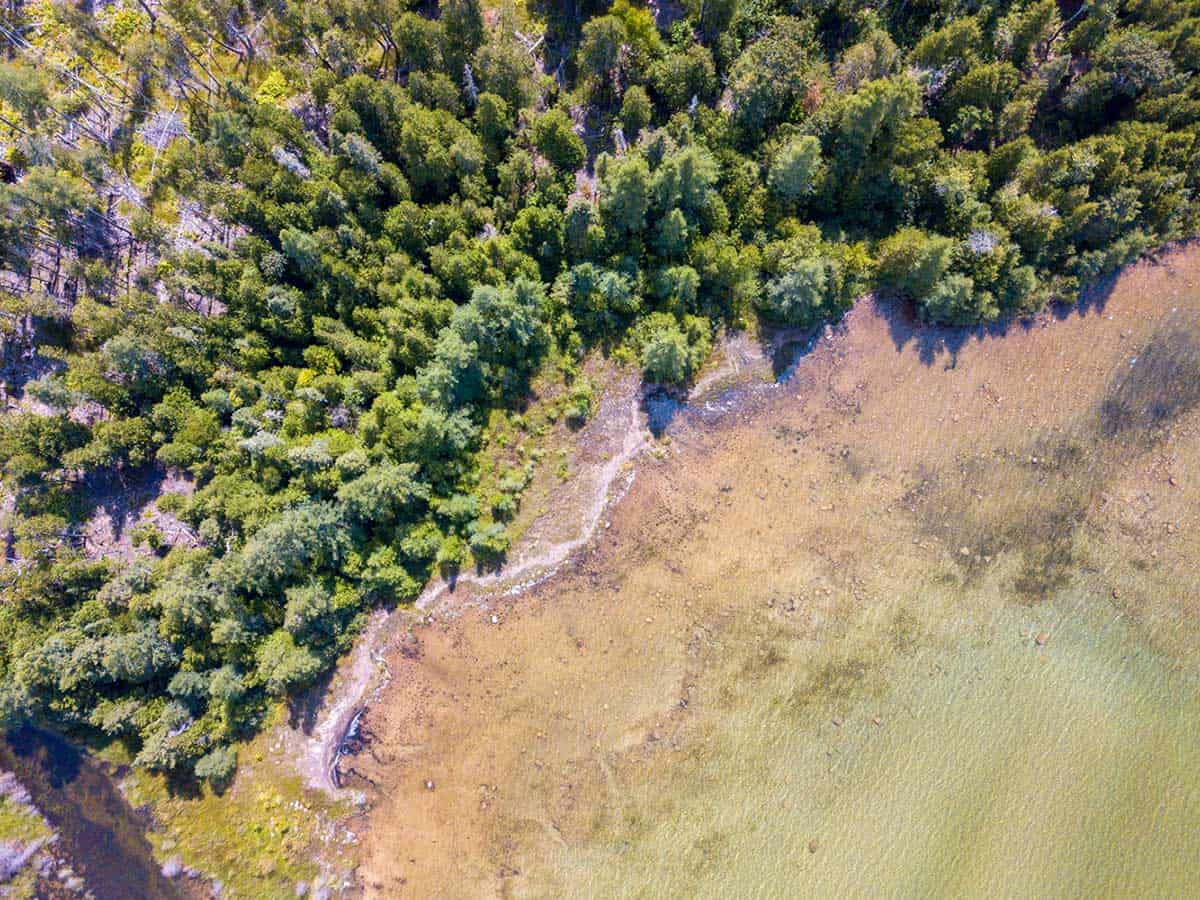
“We suspect this area will become part of the largest protected area complex south of the Canadian Shield in Canada. It’s an opportunity to create conservation at a large scale; you don’t get the opportunity to do that in southern Ontario,” Ms. Batten said.
NCC properties are generally open for public use, but Ms. Batten said there were no definitive plans yet for what degree of public access this property would have, if successful.
Vidal Bay Forest lies just north of Queen Elizabeth the Queen Mother Mnidoo Mnising Provincial Park, meaning this property would help to create a ‘conservation corridor’ in the area.
Escarpment Biosphere Conservancy (EBC) executive director Bob Barnett said the prospective conservation handover would be an exciting development for the Island, adding that his agency had attempted to buy it about 15 years ago at a Detroit auction.
EBC, which completes conservation projects apart from NCC, recently acquired another 25 acres at Misery Bay Provincial Park and is working on two other “good-size” projects on the Island at an estimated 250 acres.
“It’s a very important place. If you look at the coincidence of ecological features in Ontario, they really do all meet up around Manitoulin. It’s right at the border of north and south,” he said.
NCC regional vice president for Ontario Mike Hendren said his organization’s goal was to conserve sensitive habitats and species while also supporting ways for the public to enjoy the lands.
NCC estimates the property stores the equivalent of 8,749,969 tonnes of carbon dioxide, adding 22,675 tonnes per year. The property supports black bear, gray wolf, mottled duskywing, lakeside daisy, Hill’s thistle, eastern wood-pewee, Blanding’s turtle, least bittern and otter populations.
The Expositor contacted the Gore Bay Fish and Game Club but did not receive a statement by press time Monday.
For more information about the project or to donate to the efforts, visit NatureConservancy.ca and search for ‘Vidal Bay.’

